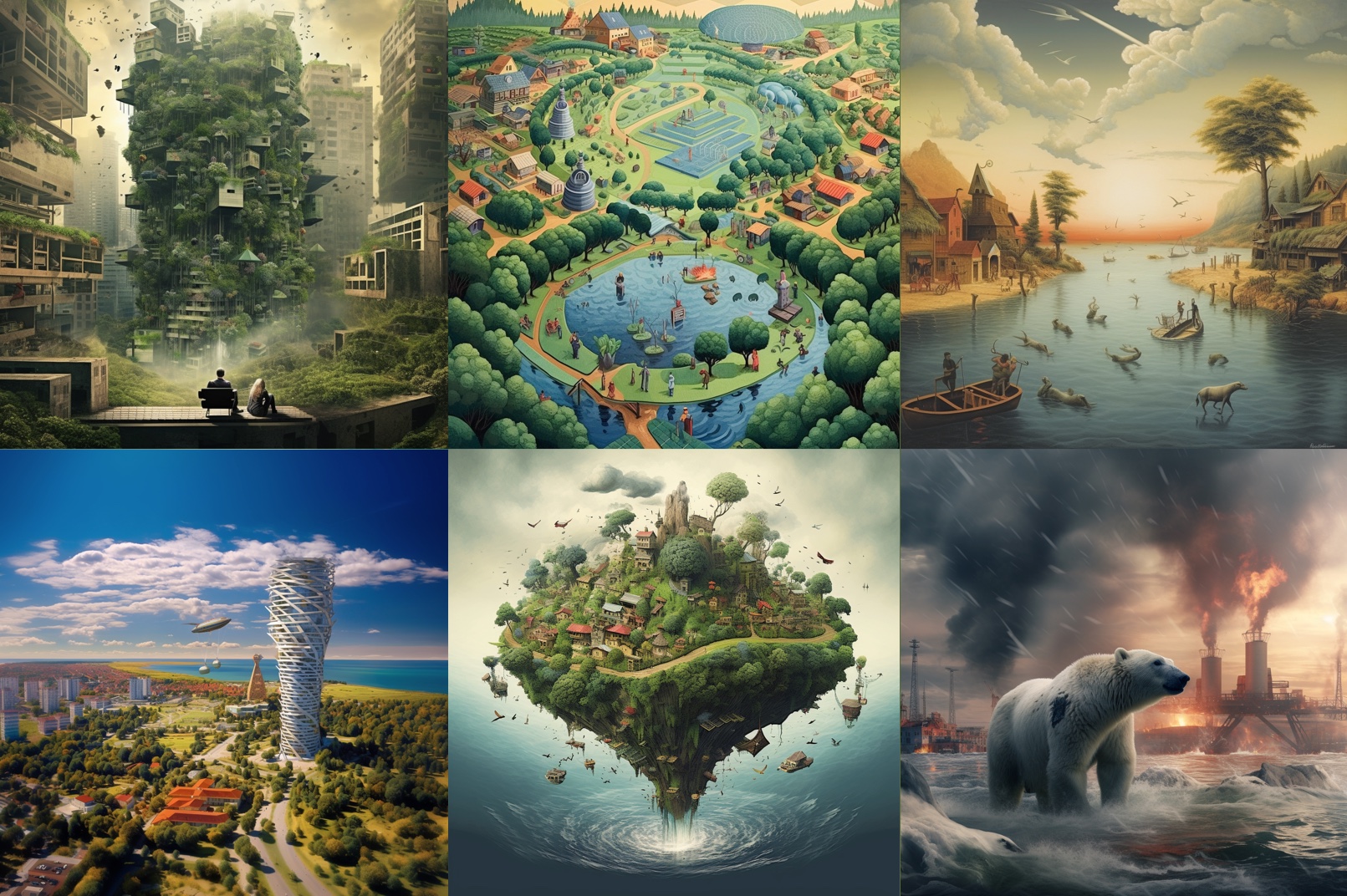Hi everyone—it’s been a while since the last newsletter, but I thought it was time for a bit of an update, not least because of some upcoming events with dates and deadlines. The last few months have been a whirlwind, including the Researching the Future Everyday course and exhibition, Playing With The Trouble workshops, contributing New Metaphors to the Transition Makers’ toolbox initiative, an IST workshop on Musical transformations: collective music making to transform our imagination, examining PhDs in Sweden and Australia (remotely), an amazing retreat for the Unbox project, and building Eindhoven’s contribution to the IMAGINE project. But here are a few other items, in more detail:
New, funded PhD position
Imagination Infrastructuring: Exploring roles for generative creativity tools in participatory futuring, climate crisis, and societal transitions
I’m pleased to be able to offer a funded PhD, at TU Eindhoven here in the Netherlands! Are you interested in design’s potential to help us imagine better futures, in an age of climate crisis? And how the explosion in AI creativity support tools could offer new ways to open up and pluralise visions of transition? Apply before 26 November.
The official job advert is below, but I wanted to add a couple of comments here, since you’re a discerning and critical audience. I am aware that perhaps we don’t need another PhD jumping on what might seem a hype train—I very much envisage this PhD (especially since it is funded for 4 years) being able to work at a somewhat higher level, and cautiously while also creatively, rather than being too closely entangled in uncritical AI boosterism. I would expect a deep and serious engagement with the kinds of nuanced ethics work on AI in practice, being done by groups such as DAIR, and likewise with design justice, just transitions, and deeper questions about “participation” in design. TU/e is a technical university, and this PhD is funded by EAISI, but there is a strong thread of ethics running through the work. Please do get in touch if you have questions—d.j.g.lockton@tue.nl
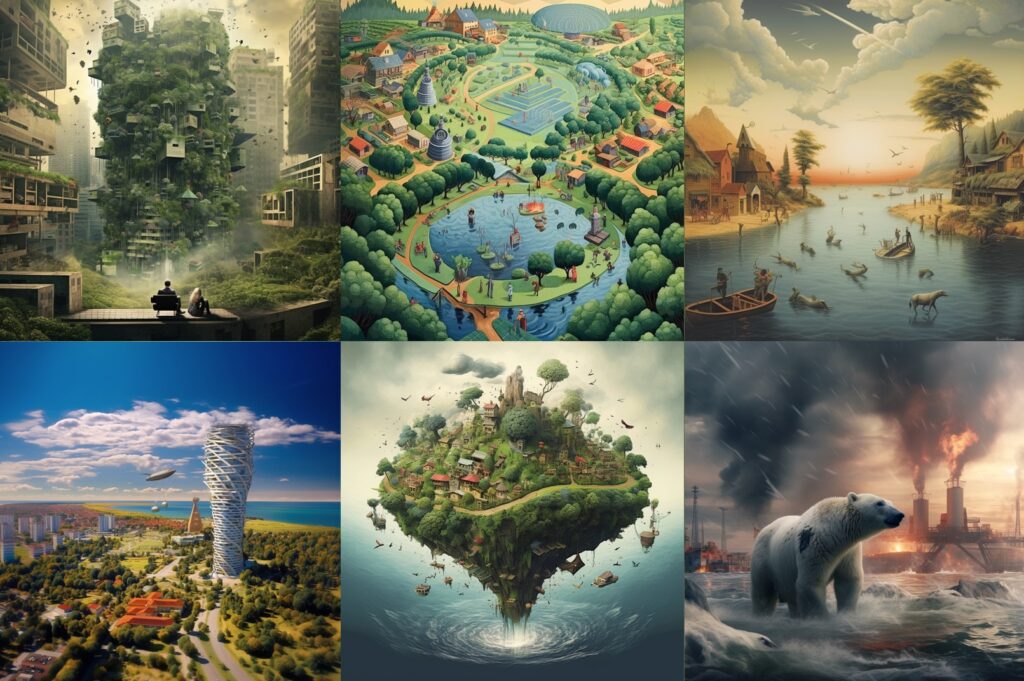
This PhD position at TU Eindhoven focuses on exploring how the kinds of AI-based generative creativity tools which have emerged in recent years—and are rapidly developing—could contribute to ‘from the ground-up’ participatory futuring for communities, in an age of climate crisis. It is about investigating, via a designerly approach, the possibilities and potential of these technologies in use, as part of creative societal applications, rather than necessarily design or development of the technologies themselves, but depending on the PhD researcher’s interests, could combine these approaches.
The urgent need for just societal transitions towards more sustainable ways of living, both environmentally and socially, is inspiring increasing interest from both academic researchers and social design practitioners in developing the idea of ‘imagination infrastructures’. Informed by considerations of adaptation to climate change, alternative economic models, social justice and societal change, these are initiatives and schemes to enable and support members of the public, including marginalised communities and neighbourhoods, to create and share actionable (or more broadly inspirational) visions and prototypes of alternative futures for everyday living.
The explosion in AI generative creativity support tools (e.g. at present, Midjourney, ChatGPT, etc—but with many more on the horizon) has, amidst all the hype, a potential to contribute here by enabling much greater democratisation and pluralisation of ‘professional’ image-making and presentation of ideas. On a practical level, for example, a community could produce its own highly plausible visualisations of alternative futures for its neighbourhood, perhaps to counter proposals from developers, or to offer visions of how a neighbourhood could adapt to climate change. Or, on a more broadly inspirational level, alternative imaginaries of future living, with new or culturally distinct aesthetics—including by community-trained or fine-tuned models—could be more easily brought into public discourse. Nevertheless, the ethical issues surrounding AI, from the biases and assumptions encoded in models and reproduced in their outputs, the potential effects on skilled jobs, entrenching further dominance of large tech companies, and intellectual property issues around creative work cannot be ignored.
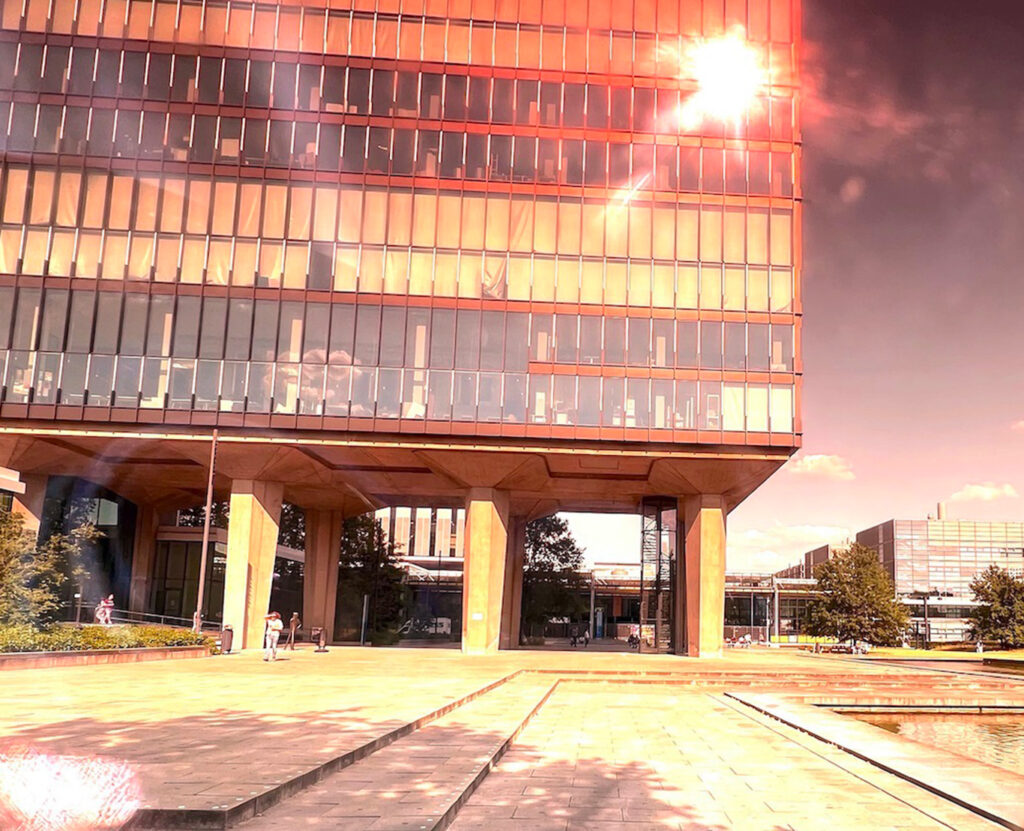
Within this space, the PhD researcher, in agreement with their supervisors, will have the opportunity to choose which directions to explore and address with their research. The topic draws from work on imaginaries, futuring (including experiential futuring), transformative practices, transition design, pluriversal design, participatory design and co-creation processes (including neighbourhood planning), design justice, research through design, speculative and critical design (and design fiction), and a growing literature in design and human-computer interaction (HCI) on (participatory) creativity methods and the use of AI-based generative creativity tools in practice. Depending on the focus of the project, domain knowledge on specific areas of sustainability will also be relevant, from climate adaptation to energy and mobility transitions (and the political and societal dimensions of these) to alternative economic models. Other creative practices, from illustration to storytelling, theatre, music, and facilitation, are also welcomed as relevant elements.
Research questions and methods:
The main initial research question to be explored by the PhD researcher is:
– What could be the roles for AI generative creativity tools in participatory futuring, climate crisis, and/or societal transitions?
The question will lead to further sub-questions depending on how the focus of the project develops, for example around how these roles can be materialised in particular contexts or with particular groups or communities, or with identified outcomes in mind.
Over the course of the 4-year PhD programme, the researcher will engage in theory and practice, including writing up and disseminating insights in academic publication venues. The final year is expected to include the compilation of a thesis. It is assumed that a research-through-design methodology is most appropriate, including prototyping, iteration, and largely qualitative insights, but different approaches are welcome, as appropriate to the project. As initially framed, the project is not linked to specific societal partners or geographical contexts, but these may be involved as the project progresses, including linking to the emerging ‘imagination infrastructuring’ practitioner community internationally. The PhD may be structured as a series of smaller projects. Societal impact and knowledge exchange, for example through the development of a method or format for communities’ use of the tools, and/or public engagement through events, exhibitions, workshops, or short courses, could be a relevant element of the overall methodology.
The PhD will be linked to the new ‘Making With…’ research cluster at TU/e Industrial Design, and is funded by EAISI, the Eindhoven Artificial Intelligence Systems Institute, which brings together AI activities from across TU/e.
Job requirements
- A master’s degree (or an equivalent university degree) in a design-related field (e.g., Interaction Design, Architecture, Industrial Design, Product Design, Service Design, Human-Computer Interaction, Graphic Design, Fashion Design) or another creative discipline.
- Previous experience with participatory methods, and community engagement will be an advantage, as will domain knowledge of social science and sustainability or transition concepts. Experience using creative AI tools, and an understanding of (or willingness to learn about) how they work, and an interest in the ethical and social justice issues associated with contemporary debates on the topic, will also be important.
- Experience in project work (to be demonstrated through a portfolio).
- Proficiency in qualitative data-collection and analysis methods.
- Excellent communication skills in English, including writing. The ability to conduct fieldwork in other languages would be a plus, but there is no Dutch language requirement.
- A research-oriented attitude, openness, interest, and good soft skills to work closely with people from other disciplines and across organisations, and to learn from theory in the social sciences, humanities, environmental sciences, AI, or other fields.
- Willingness to engage in working practically with communities and members of the public.
See the full job advert for details of salary and employment conditions.

Climate Futures Now! Design United Dialogue at Dutch Design Week, 24 October
If you’re coming to Dutch Design Week on 24 October in Eindhoven, please join us for Climate Futures Now! at Microlab Eindhoven — an afternoon of playful activities and interactive projects from the four Dutch technical universities‘ Design United programme.
From 14.30 to 17.00 we’ll be exploring how designers can bring plural possible futures to life, in the present, in an age of crisis and change, from speculative design to participatory methods, with games, and an overall collective activity with visitors where we (hopefully) move from speculation to action:
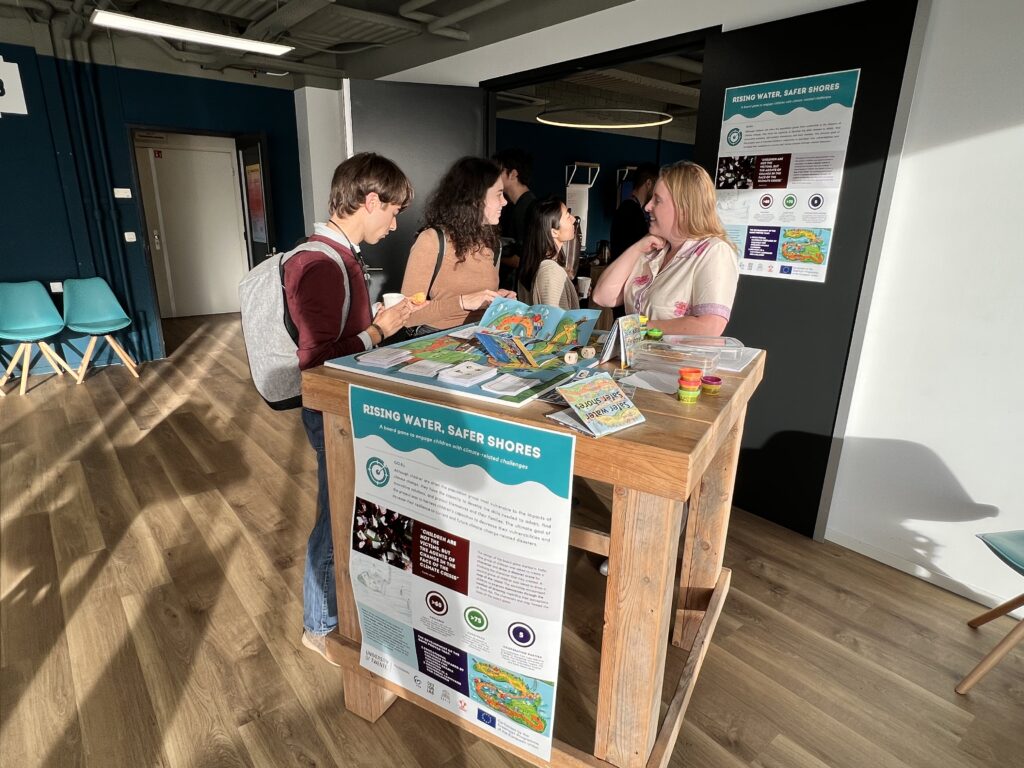
- Games for the Redesign of Farming & Food Systems – Federico Andreotti and colleagues, Wageningen University & Research
- Virtual River Game — Robert-Jan den Haan, University of Twente
- Future Narratives — Vere Vreeswijk, TU Eindhoven
- Democratised Future Visioning — Elke van Dael, TU Eindhoven
- (Blue)Green Roof — Leon Peters + colleagues, University of Twente
- Unlocking Social Energy Through Relational Giving — Vicky Toellner, TU Delft
- Powerless Politics — Nathalie Kamp, Youp Ferket, Floris Thoonen, TU Eindhoven
- Timeslip 2038 — Robyn Huiting and the Researching the Future Everyday course, TU Eindhoven
- Chair of the Future — Margot Beekhuizen, TU Eindhoven
Register now — no DDW ticket required. The event is organised by Julieta Matos Castaño, Federico Andreotti, Eveline van Zeeland, Renee Noortman, Roy Bendor, and myself, with great coordination by Marijke Idema.
DRIVE Festival 2023—Collective Imagination for Transformative Futures: Design, Climate Change and Urban Transformations
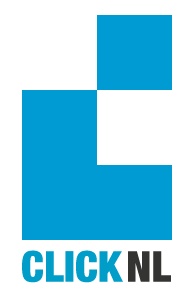
Also during Dutch Design Week on 24 October in Eindhoven, Julieta Matos Castaño (University of Twente) and I will be running a workshop at ClickNL’s DRIVE Festival, an event bringing together the creative industries in the Netherlands with academic researchers. Our session, Collective Imagination for Transformative Futures: Design, Climate Change and Urban Transformations, is part of a day focused on Future Living Environments, co-organised with Design United:
How do we imagine transformative futures in everyday life in the Netherlands? In an era of urgency for some and apathy for others, what futures do we hope for, or envision, for our own communities or others—and how can we embrace our agency to bring about these transitions?
What if we could experience different versions of our own futures? Designers have the ability to create plausible versions of everyday life, with culture, social practices, challenges, interwoven with changes to our homes and cities, how we eat, travel, work, and care for each other, and interact with nature. How can we do this with communities?
In this interactive and experiential session, we invite a diverse group of researchers and practitioners to share experiences on the development and application of participatory futuring methods for facilitating community imagination in societal transitions. Our goal is to learn from each other and identify opportunities for future collaborations. To this end, we will encourage participants to share their dreams and aspirations for future projects and initiatives, collectively mapping a shared creative vision of the possibilities of this space. We will incorporate reflections on the prerequisites necessary to bring this future into reality.
The session will activate a network of societal stakeholders interested in participatory futuring activities, relevant for the Industrial Design department of Eindhoven University of Technology, and DesignLab at the University of Twente. We will document the results of the session as a first step for future collaborations on projects around societal transitions and urban transformation.
Reimagining Institutions
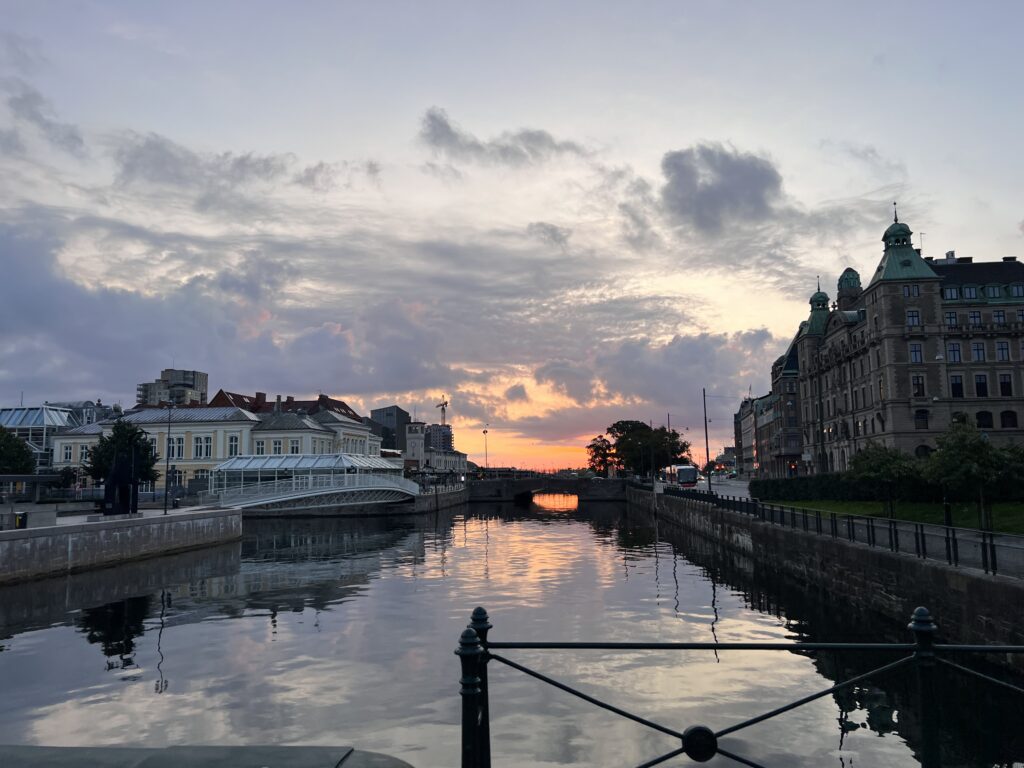
At the end of August I was honoured to be invited to give a talk at The Conference in Malmö, a wonderful event organised by Media Evolution, bringing together a really interesting set of people to “delve into the promises and pitfalls of human-machine-nature-and-more relationships.” My talk focused on reimagining institutions, as part of a great session led by Himanshu Rohilla, also including Anne Kaun from Södertörn University. You can watch the talk here (or below), and the Q&A too. Among so many thought-provoking conversations and presentations, The Conference reminded me just how much academia misses out when it so narrowly focuses on only the peer-reviewed-paper-type conference format (with all the stress of that process) as a way of sharing ideas and meeting people. I have been involved with my fair share of these, and they can be enjoyable and transformative, but the energy and life that can come from weaving curious people from different backgrounds together with no expectations of “an output” shouldn’t be underestimated.
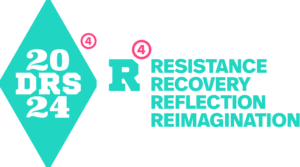
Designing (for) Transitions and Transformations:
Imagination, Climate Futures, and Everyday Lives
A theme track at DRS 2024, the Design Research Society international conference, June 24th-28th, 2024, Northeastern University, Boston, MA, USA (and online)
Speaking of conferences, in the more academic vein, I’m part of a team organising a theme track at DRS 2024 exploring ‘Designing (for) Transitions and Transformations’. Full papers are due October 31st 2023—we’ve had some intriguing abstracts submitted so far. Essentially: keep an eye on this track at the conference (and in the DRS Digital Library next year) for some great work from around the world.
More details on the DRS 2024 website or in this PDF version.
The urgency of crises in planetary health—climate, biodiversity loss, inequality, and others—has made design’s role in transformative change ever-more important in the pursuit of sustainable, just and resilient futures. Arising from distinct disciplinary traditions within academia, the fields of design, futures, transitions, sustainability science and allied approaches (with their own norms, frameworks, and methods) are increasingly converging. Emerging from this space are new configurations and integrations, especially in practical applications where policymakers, communities, businesses, and new forms of organisation are engaging with the challenges we face—often situated and local, but interdependent within the complex systems of society and the environment.
In design research, approaches such as transition design (Irwin et al, 2015) feed into a fertile landscape where futures studies, speculative and critical design, pluriversality (Leitão et al, 2021), imagination infrastructuring, justice (design justice, climate justice, just transitions), more-than-human and nature-inclusive perspectives (e.g. Veselova et al, 2022), emotions in transitions (e.g. Lindström et al, 2021), alternative economics, regenerative design, non- and decolonial perspectives (e.g. Juri et al, 2021), feminist perspectives, design education (and futures literacy), and many other lenses on transformative change are overlapping, creating a new space for exchange and exploration.
This track aims to help this emergent community discover each other and cross-pollinate—enabling new connections, collaborations and learnings, and a first step towards building a DRS Special Interest Group. We build on tracks, conversations, and workshops at DRS 2018 (Boehnert et al, 2018) and DRS 2022 (Coops et al, 2022; Light et al, 2022) specifically focusing on designing for transitions or nurturing transformative futures by/through design.
Track chairs: Femke Coops, Eindhoven University of Technology, Netherlands; Dan Lockton, Eindhoven University of Technology, Netherlands; Idil Gaziulusoy, Aalto University, Finland; Cameron Tonkinwise, University of Technology Sydney, Australia; Joanna Boehnert, Bath Spa University, United Kingdom; Marysol Ortega Pallanez, Arizona State University, United States; Anja Overdiek, Rotterdam University of Applied Sciences, Netherlands; Ida Nilstad Pettersen, Norwegian University of Science & Technology, Norway; Alma Leora Culén, University of Oslo, Norway; Silvana Juri, SARAS Institute, Uruguay / Stockholm Resilience Center, Sweden
Right, well, that’s a very long newsletter already, so I’ll stop there—but, hopefully, more regular updates, and more of a blogging routine, are on their way back.
Take care, look after each other
Dan
